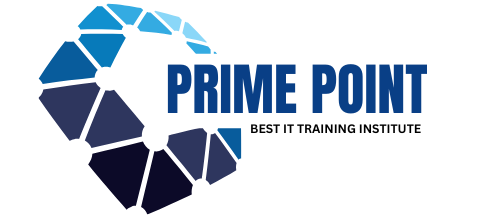
E-Commerce Solutions with MEAN Stack: A Complete Guide
Be it the rapidly growing need to scale up, make it user-friendly, or deliver feature-rich platforms, e-commerce has exponentially grown. Developers and businesses are continuously searching for frameworks that can handle all the complexities modern e-commerce presents. Among those powerful frameworks is the MEAN stack. The well-integrated confluence of MongoDB, Express.js, Angular, and Node.js makes MEAN a robust solution for building dynamic, high-performance e-commerce platforms.
MEAN is a full-stack JavaScript-based development framework where each component plays a crucial role in building dynamic, scalable applications. MongoDB is a NoSQL database that stores data as flexible, JSON-like documents, making it suitable for managing product catalogs, user information, and order histories. Express.js, a lightweight backend framework for Node.js, simplifies routing and API creation. Angular, a front-end framework, helps construct dynamic user interfaces and single-page applications (SPAs). Node.js, a runtime environment, enables server-side JavaScript execution, ensuring fast and effective performance. When combined, these technologies allow developers to create scalable e-commerce websites with real-time updates and interactive features.
One of the key advantages of MEAN is its use of JavaScript for both client-side and server-side development. This eliminates the need to switch between languages, streamlining development and reducing the learning curve for developers. Scalability is another strength, with MongoDB’s flexible nature and its ability to handle large volumes of data. Paired with Node.js’s non-blocking architecture, MEAN-based applications can efficiently manage high traffic and extensive datasets.
Dynamic user interfaces are crucial for e-commerce, and Angular ensures smooth navigation without page reloads. Features like real-time search, product filtering, and inventory updates enhance user engagement. As an open-source stack, MEAN is cost-effective, allowing rapid development and iteration without excessive resource expenditure. Additionally, it offers high flexibility and customization, supporting features like payment gateway integration and complex search algorithms to meet specific business needs.
A shopping e-commerce platform built with MEAN offers several key features. Angular enables intuitive and visually appealing user interfaces, making it easy to create product galleries, personalized dashboards, and targeted recommendations. MongoDB’s document-based model is ideal for inventory management, ensuring real-time stock updates with the help of Node.js. Secure payment integrations with platforms like Stripe, PayPal, and Razorpay ensure sensitive information is handled safely. Advanced search functionality, enabled by MongoDB’s aggregation framework, enhances the shopping experience with category filters, price range sliders, and keyword-based suggestions. With Angular’s responsive design, e-commerce websites automatically adapt to different screen sizes, catering to the growing number of mobile shoppers. Meanwhile, Node.js supports scalable backend services, handling tasks like user authentication, order management, and instant notifications efficiently.
The components of the MEAN stack work together seamlessly in an e-commerce environment. For example, on a product page, Angular dynamically retrieves and displays product details such as images, descriptions, prices, and availability. It also manages user interactions like adding items to the cart and applying filters. Express.js routes requests from the frontend, handling search queries and cart updates. MongoDB stores essential data, including products, order histories, and user information, and updates inventory in real time. Node.js ensures smooth communication between the frontend and backend, delivering real-time updates and processing API requests with high performance.
Despite its advantages, building an e-commerce platform presents challenges. One challenge is managing high traffic, especially during peak sales or festive seasons. MEAN’s asynchronous and horizontally scalable nature, particularly with Node.js and MongoDB, allows it to handle sudden traffic spikes efficiently. Security is another concern, as e-commerce sites process sensitive customer data, including payment information. Implementing HTTPS, encrypting data communications, and using secure authentication methods like OAuth or JWT with Express.js enhance security. Adding advanced features like order tracking, product recommendations, and multi-language support can be complex, but MEAN’s modularity allows easy integration of third-party libraries and APIs for business-specific needs.
Many real-world e-commerce applications leverage MEAN stack technology to deliver top-tier user experiences. Start-ups favor it for its cost-effectiveness and scalability, while niche marketplaces use it to create highly customized platforms tailored to specific audiences. Even large enterprises are increasingly adopting MEAN due to its ability to handle complex workflows and high traffic volumes.
Overall, MEAN offers a comprehensive solution for building feature-rich, scalable, and efficient e-commerce platforms. Its unified JavaScript ecosystem provides the flexibility and power needed to create dynamic shopping experiences. Whether for a start-up aiming to establish itself or an existing business looking for scalability, MEAN delivers the necessary tools. Businesses leveraging this stack can stay competitive in the fast-paced e-commerce industry, offering fast, secure, and user-friendly platforms that attract customers and drive sales.










